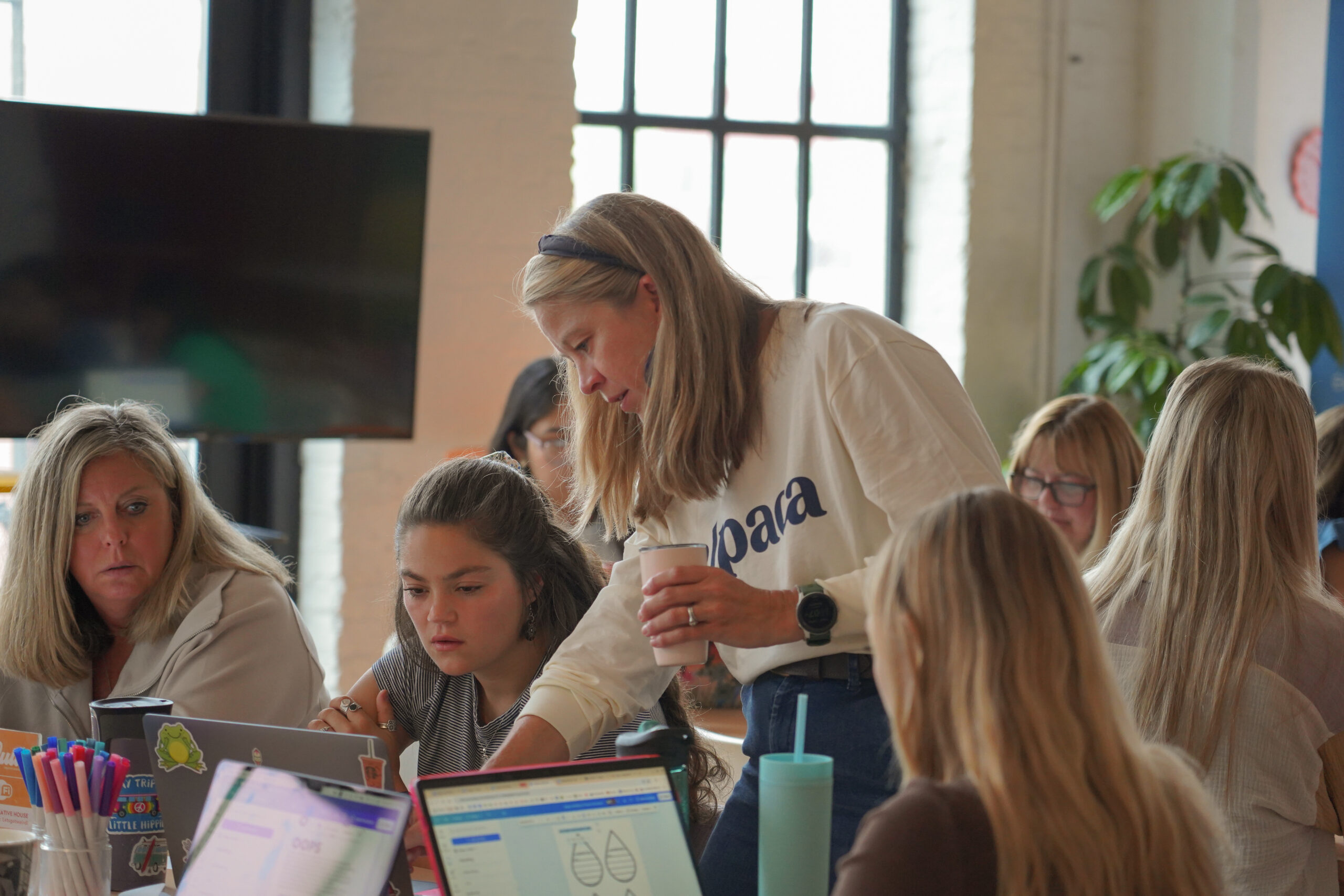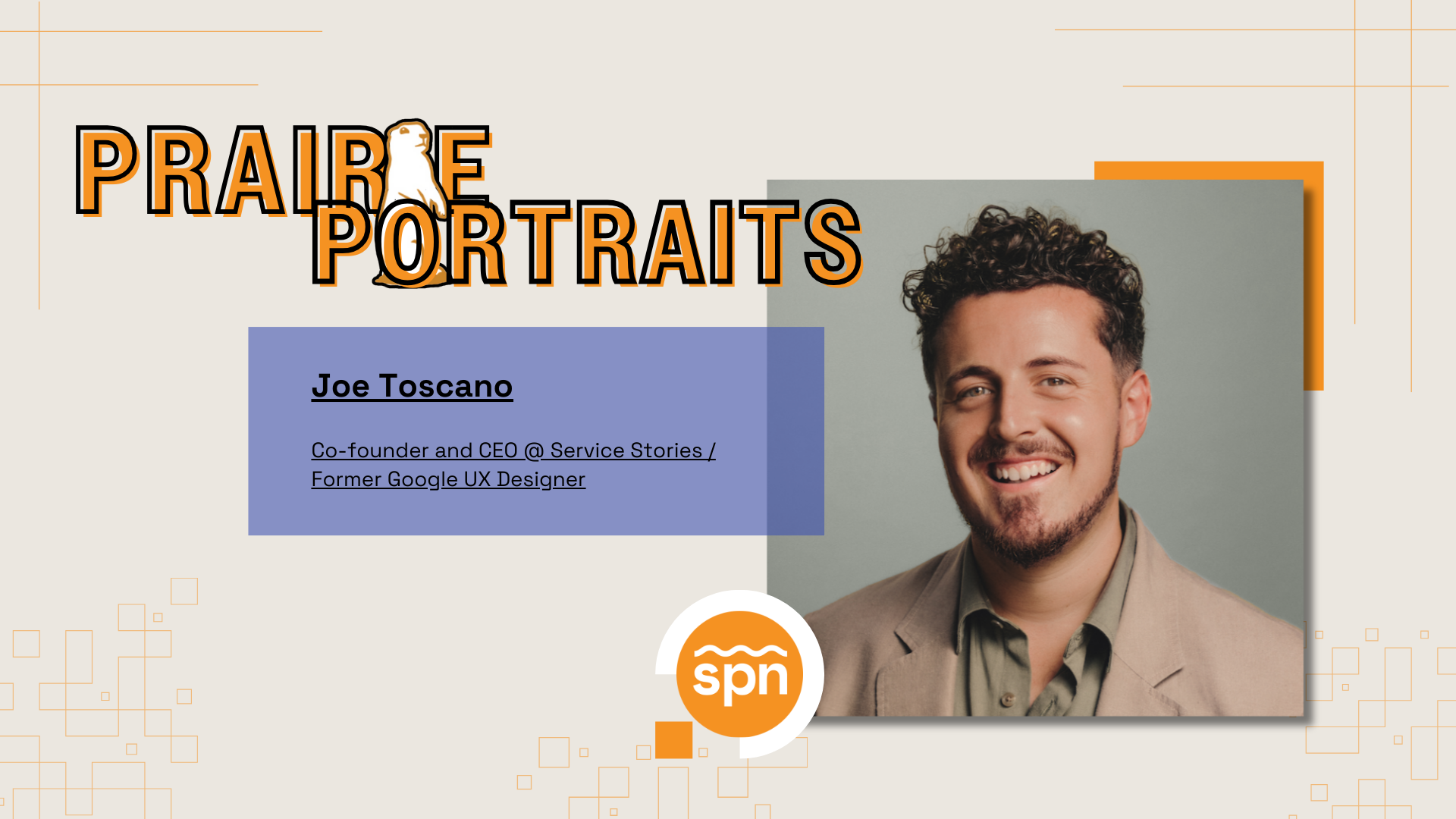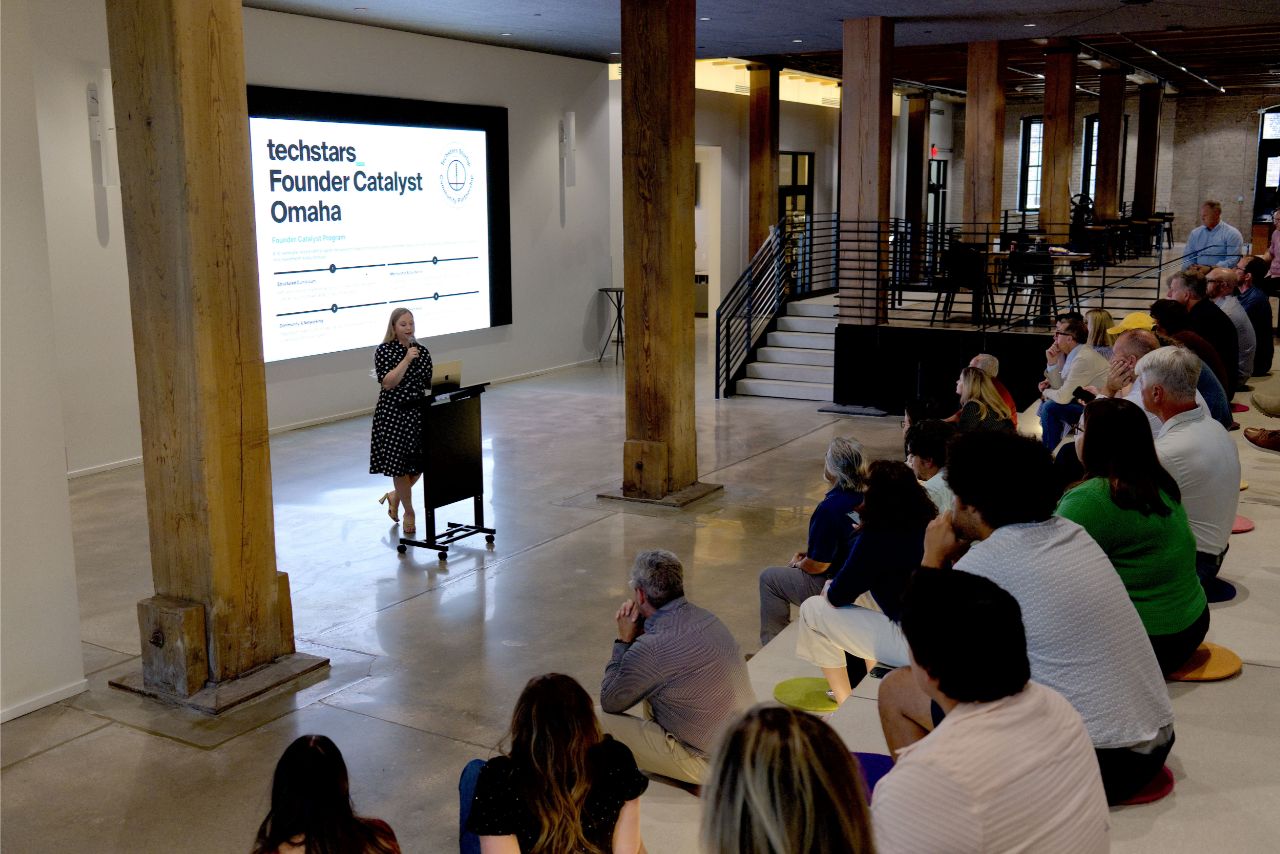At Luli Creative House, the atmosphere feels more like a joyful co-working space than a traditional teacher workshop. Bright signs hang on the walls, paper scraps and sticky notes are scattered on tables and about two dozen educators sit in pairs, laptops open, discussing ideas. It’s Day 6 of 8 at Camp Alpaca, a two-week paid internship designed not just to inspire educators, but to put them in the driver’s seat of innovating school culture.
The program is the latest initiative from Alpaca, an award-winning education startup with a mission to make teachers feel more supported in their work. Founded in Omaha in 2022, Alpaca began by creating celebratory “Alpaca Packs” that help school leaders recognize their staff. Since then, it has expanded into a full library of downloadable resources and well-being tools for schools nationwide. Now, with over 100 participating schools and districts, the company is turning its focus toward co-creation with teachers at the center.
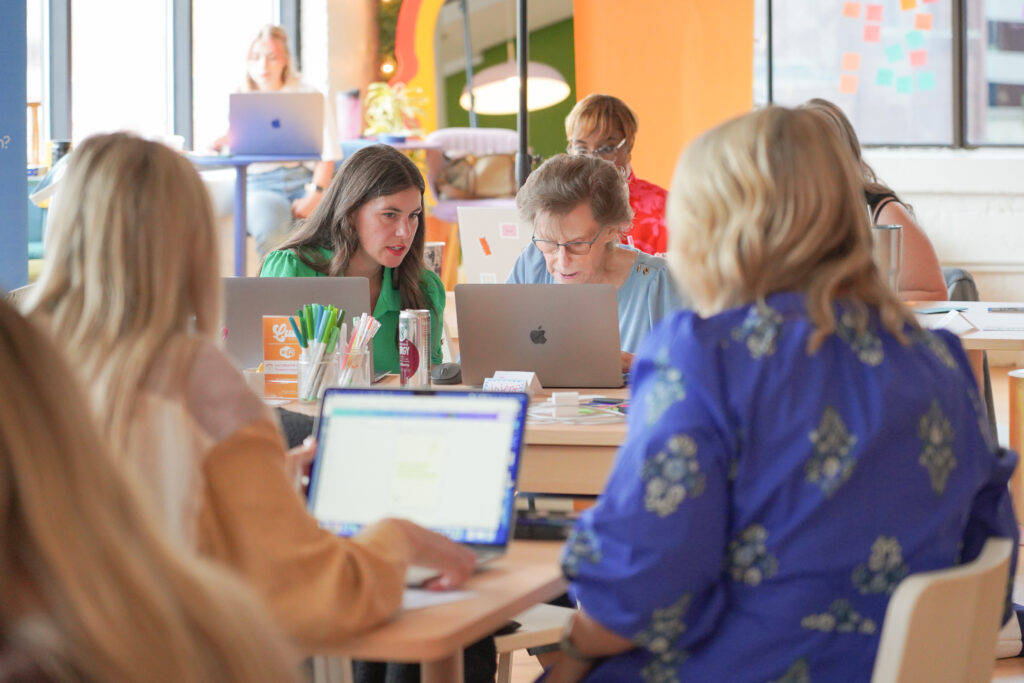
“Our top, No. 1 core value is: Listen to teachers,” said Karen Borchert, founder and CEO of Alpaca. “This is 1,000 hours of teacher input. We are absorbing and listening to the words teachers say, how they talk about work, where there’s confidence, where there’s not, what makes them feel supported and celebrated and like they belong.”
A summer camp for educators
Camp Alpaca originated as a small idea earlier this year, when team members at Alpaca proposed the concept of hosting summer internships with a few teachers to help develop new materials. After putting out an application, they hoped to attract 10 participants. Instead, they received 80 responses and had to close the form early. With the help of a sponsor, the company expanded its vision and selected around 20 educators to participate in the pilot cohort.
Held June 16-26, the program provided each educator with a $1,000 stipend, daily lunch and snacks and the opportunity to work creatively and collaboratively. Participants included teachers, school counselors, paraprofessionals and other education professionals, mainly from the Omaha and Lincoln metro areas.
Camp Alpaca is an internship. And like any internship, the goal is to build meaningful skills and produce meaningful work.
Creating real tools for real classrooms
Each participant at Camp Alpaca was paired with another educator and tasked with creating three concrete resources designed to support school culture. That might mean a meeting template to help school teams reflect on their successes, a gratitude exercise for colleagues or a toolkit for welcoming new teachers to the building.
One team worked on a resource called “Owning My Oops,” aimed at helping students and staff normalize mistakes and treat them as learning opportunities. Another pair developed a back-to-school activity called “Heritage Hands,” inviting students and educators to decorate paper hands with symbols of their background and share them with peers.

Throughout the two weeks, educators utilized such tools as Canva to design visual materials and participated in photography and video workshops to complement their projects. They also explored artificial intelligence platforms like MagicSchool, an AI assistant for educators to simplify teaching tasks and increase efficiency.
The first week of camp focused on creative workshops. By the second week, the educators were diving into content creation and readying their materials for publication on Alpaca’s website.
“We want to give them an idea and then all the principles and tools to make it real,” Borchert said.
All resources created during camp will be published in Alpaca’s online library, with credit given to the educators who developed them. The aim is to release more than 30 new school culture tools before the start of the school year.
What it means for educators
Jocelyn Bocanegra-Rangel, a third-grade teacher at Crestridge Elementary in Omaha Public Schools, said the experience helped her reconnect with her creative side and see new ways to apply design thinking in the classroom. She especially enjoyed using Canva and sees clear potential for integrating the tool into her future lesson plans.
“The creative activities in the first week really got me into a different mindset,” she said, “and I started seeing how I could bring that energy into my teaching.”

Karen Avila, a second-grade teacher at All Saints Catholic School in Omaha, said she joined the camp as a way to give back. Her school has benefited from Alpaca’s work over the past few years, and when the opportunity came to contribute, she jumped in.
“I didn’t know what to expect, but it pulled my creativity forward,” Avila said. “I’ve been able to be innovative in ways I didn’t realize I needed.”
Lisa Craig, a school counselor serving multiple Catholic schools, said she appreciated how every idea was welcomed and thoughtfully built upon.
The tools being created, she said, are practical and intentional.
Building creative confidence
Borchert said Camp Alpaca is a test case for a new model of listening to educators and treating them as the creative professionals they are.
“‘Just a teacher’ is my literal least favorite phrase in human language,” Borchert said. “You’re an extraordinary creative professional. We’re going to help you see that.”
Participants echoed that sentiment. Elisha Suttles, who works at Nelson Mandela Elementary School in Omaha as a scholar and family support liaison, said the experience gave her insight into the thought process behind the tools Alpaca offers schools.
“I’ve loved learning how these resources come together, step by step,” she said. “Every part of it is intentional. And now I can see how to implement these ideas with purpose.”
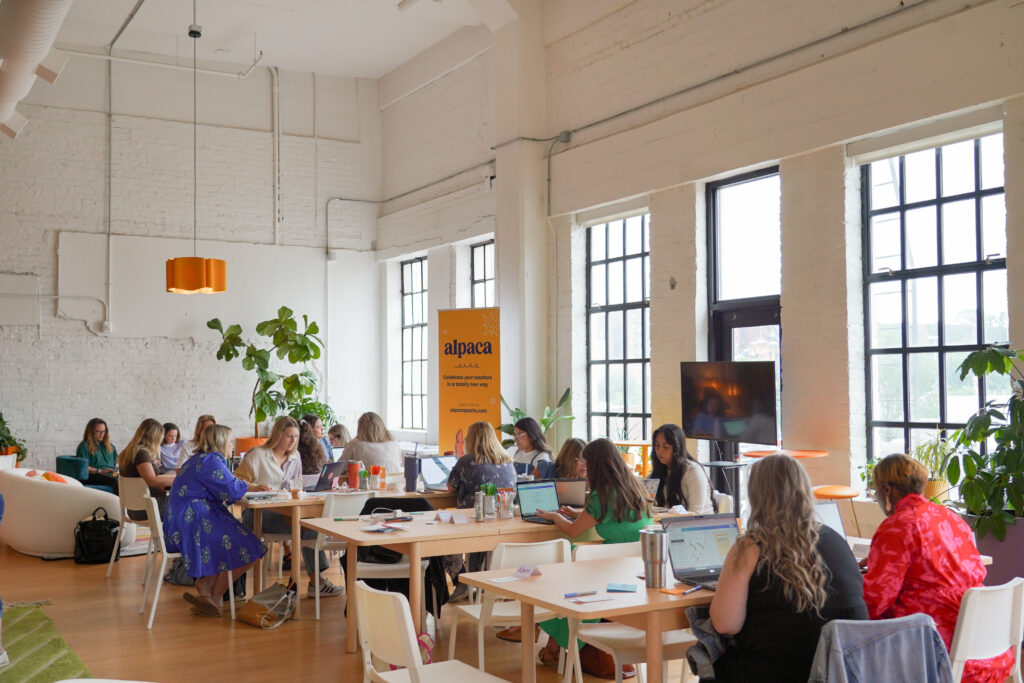
Suttles’ team worked on the “Heritage Hands” kit and a series of resources for school staff to use in fostering inclusive dialogue and building stronger relationships across roles.
Across the board, the educators described the camp as energizing, collaborative and affirming. The chance to work with peers, try out new tech tools and see their ideas brought to life while being paid for their contributions was a rare and appreciated opportunity.
Looking ahead
Borchert and the Alpaca team hope to expand Camp Alpaca in future years. That means offering housing stipends so educators from more regions can participate and building out additional support to make the program even more accessible.
More broadly, they hope this kind of collaborative, teacher-centered design process becomes a standard.
“What if resources were built not by a team sitting in an office,” Borchert asked, “but by a large community of educators?”

